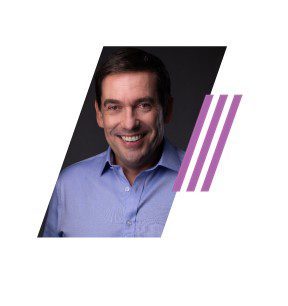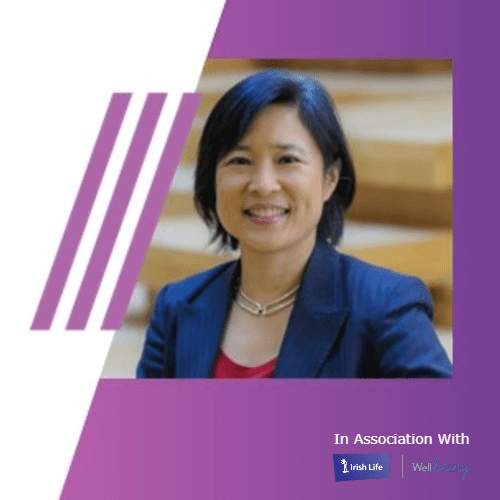Hal Gregersen: Make Inquiry your Leadership Superpower
By Hal Gregersen | 18th May 2021
The key points from the MIT senior lecturer’s Masterclass session, in partnership with Mason, Hayes and Curran.
‘Plans don’t think’
Recounting his 2015 trek with mountaineer David Breshears to Everest Base Camp, Hal sympathised with the difficult transitions that leaders are going through at this time. He explained that the experience of hitting the tough conditions of the high altitudes of the Khumbu Icefall taught him a lot. ‘It’s one thing to talk about leading teams at high altitudes,’ he said, ‘but it is completely different to actually be there’. Addressing the current context of the pandemic and the obstacles faced by leaders everywhere, Hal insisted that we are all surviving in that high altitude state these days. He emphasised that ‘plans don’t think’ and even the best plans are often turned upside-down by forces out of our control.
Future-fit leaders must be digitally savvy
Hal acknowledged the myriad challenges facing organisations and individuals, encouraging them to keep one eye on the future and to foster a sense of optimism when possible. He pointed to two key skill areas that would form the foundation of future employment: digital savviness and having the creative skills to leverage those digital tools optimally. The power of inquiry, he said, goes hand in hand with creativity; asking the right questions sets the table for ideas.
“The best way to encourage more of the behavior you want is to create the conditions in which that behavior will arise naturally.” – Hal Gregersen, Questions Are the Answer: A Breakthrough Approach to Your Most Vexing Problems at Work and in Life
The Inquiry-Insight-Impact model for leaders
It is incumbent on leaders, Hal said, to carve out the space and time for inquiry. Whether that takes the form of a team brainstorming session or a self-directed question burst, he said, is not important. Finding this space can spur deeper inquiry, which in turn can lead to insights about a particular transition or problem. Positive impacts follow, he emphasised, so even a simple five-minute session of questions can yield huge rewards. Hal recommended this Inquiry-Insight-Impact model to frame difficulties or challenges and as a vital tool for leaders everywhere.
Embrace the quest in every question
Hal asked Masterclass delegates to think about the transitions they were finding the most trying and impressed upon everyone that sometimes the most important question to ask yourself is: ‘Who can help me?’ Each time a question is sparked in our minds, he said, we are embarking on the quest built into that question. Regardless of where on the transition curve you sat, Hal said, implementing so-called ‘diagnostic questions’ – those that spark reflection and action – can be potent tools to move forward. He said that often we limit ourselves to a focus on self with these questions, but it is often more enlightening and useful to ask: How might I help my colleagues with their transition?
Voice and choice
Ultimately, Hal said, as leaders we are trying to give our people ‘increasing voice and choice’. This entails negotiating the gap between your own expectations and those of others and managing emotional energy. By remaining focused on the people around us and their personal stories and transitions we are better able to frame the problems, contextualise them and move forward, he explained. A simple acknowledgement of the difficulties that others are contending with can be a game-changer, he concluded.
Compose and wait
Expanding on his lifetime love affair with photography, Hal shared three of the most powerful words for leaders going through transitions: compose and wait. As a photographer, he explained, it is often the shots that we must wait for that turn out to be our best. He went on to say that the most innovative leaders on the planet adopt this mindset: they compose the right conditions and wait for the right questions to solve a problem.
“Most of the spaces where social discourse happens in our world are not conducive to questioning or to developing people into more creative, constructive questioners—but if we recognize that deficit and resolve to change it, we can build the spaces that are.”
― Hal Gregersen, Questions Are the Answer: A Breakthrough Approach to Your Most Vexing Problems at Work and in Life
Get comfortable being wrong!
In concluding the Masterclass, Hal shared a nugget that ‘no manager is right more than 55% of the time’. Leaders, he said, would be best served by getting comfortable being uncomfortable, accepting that they will be wrong at times and to be ‘reflectively quiet’ on the conditions needed to progress. Hal encouraged leaders to implement a four-step method when faced with adversity: Stop, Breathe, Think and Act. He emphasised that this simple process allowed for a greater clarity of inquiry and focused problem-solving, regardless of the issue at hand.
IMI is delighted to partner with Mason, Hayes and Curran for this Masterclass.
For more IMI Corporate Member Insights, go here.








